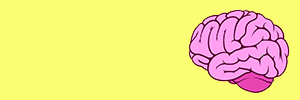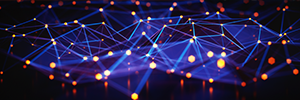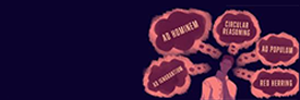|
|
| (258 intermediate revisions by the same user not shown) |
| Line 2: |
Line 2: |
| {{Main Page - new design/header}} | | {{Main Page - new design/header}} |
| {{Main Page - new design/navigation}} | | {{Main Page - new design/navigation}} |
| <div id="home-content"> | | <br /><div style='text-align: center;'>'''This Open-Source Wiki is upheld by an anonymous group of professional scientific moderators. As a group, we induce [[Pivotal Mental States|neuroplastic states]], review [[Sci-hub|open scientific literature]] and edit this Wiki. We offer a bounty for any errors you might find, to claim, post on our open [https://www.reddit.com/r/burnzero/comments/vur78q/bounty_find_a_factual_error_on_burnzerocom_get_10/ subreddit].''' </div> |
| == '''Preface''' ==
| |
| ''All [[Referencing|references]] made on this wiki come from scientific journals based upon access to data that would not have been possible without the incredible work performed by Aaron Schwartz and Alexandra Elbakyan in the creation of [[Sci-hub]], a decentralised shadow library of restricted access scientific research papers. BurnZero is maintained by an anonymous group of moderators one of which is [https://twitter.com/voytekbereza Voytek Bereza], a prescribing, [https://www.pharmacyregulation.org/ GPhC] licensed, [https://search.disclosureuk.org.uk/ ABPI transparent], pharmacist based in Sydney, Australia. We offer a bounty for any errors, to claim post it on our anonymous [https://www.reddit.com/r/burnzero/ subreddit] .''
| |
|
| |
|
| == '''Part 1:''' Introduction ==
| | <hr /> |
| [[We]] are running out of [[Ecological Crisis Timeline|time]] to hide from the [[ecological crisis]]. Whilst we have been working on solutions to deforestation, biodiversity loss and climate change, these are only remedies to symptoms, not the disease itself. Common [[logical fallacies]] mean many of us are unaware, those that are have been [[Technological pacification|pacified]] to how imminence of the threat. In response, we have elevated [[Representative|representatives]] to power to address the issue, only to find many of them [[Capture|captured]] by [[bad science]] and big finance.
| |
|
| |
|
| In our frustration we formed activist groups, [https://tomorrowmovement.com/ Tomorrow Movement], [https://rebellion.global/ XR], [https://www.seashepherdglobal.org/ Sea Shepherd]... and are funnelling funds to the wages of [[Charity|charities]] such as [https://www.greenpeace.org/international/ Greenpeace] and [https://www.wwf.org.au/ WWF]. All fight for the same cause however, through inefficiencies, egotism and tribalism we remain ''divided'' lacking vital economies of scale. Solidarity is desperately needed, but this requires trust in a cohesive vision. This evolving wiki, BurnZero, is dedicated to the [[Proposals|exploration]] and [[Commissions|funding]] of new [[Open Source|open-source]] routes forward.
| | <div style='text-align: center;'>[[The Objectivity Assumption|We tend to perceive our inner, subjective reality as a replica of the objective one]]. However, evolution has shaped human sensory and interpretation systems to guide [[Adaptive Action|adaptive action]], not to show us the true nature of reality. These interpretation systems contain a range of energy saving [[heuristics]] called [[Cognitive Biases|cognitive biases]] which commonly exhibit as systematic errors in thinking'''.''' </div><hr />'''<big>Recent updates</big>''' {{Special:RecentChanges/10}} |
| | |
| == '''Part 2:''' Popular Delusions ==
| |
| Our personal paradigm often positions itself as the only paradigm. However, [[popular delusions]] which include prominent [[logical fallacies]], [[Thought Paradoxes|thought paradoxes]] and [[cognitive biases]] distort our view of a common, shared reality. Before we can effectively address this crisis, first we must look at ourselves and dissolve our ancient perceptual frameworks and enable new modes of thought. However, due to the limited timeline and the degrading [[neuroplasticity]]<ref>'''Do heads of government age more quickly?''' BMJ. Published 14 December 2015, accessed on 12th July 2022 via: https://doi.org/10.1136/bmj.h6424</ref> of [[Gerontocracy|those in power]], traditional learning is too slow for the task ahead. We need to induce [[Pivotal mental state|pivotal mental states]] with proper guidance to change our minds before an ecological collapse will.
| |
| == '''Part 3:''' Learning from our mistakes ==
| |
| Our societal-level social experiments have failed to provide us with long-term, sustainable solutions. Communism in the 1900s showed us our [[selfish genes]] and neoliberalism has now brought us to the brink of environmental collapse. Instead of [[framing]] these failed systems as two ends of a spectrum we need to agree they have both failed us.
| |
| | |
| To get out of this mess, we need to better understand what makes us. Our genes, which for millions of years have been attuned to scarcity are now facing abundance making obesity a greater threat than starvation<ref>'''Global burden of 87 risk factors in 204 countries and territories.''' The lancet, Global Burden of Disease Summary 2019. Accessed on 20th Aug 2022 via <nowiki>https://www.thelancet.com/journals/lancet/article/PIIS0140-6736(20)30752-2/fulltext</nowiki></ref>. In the [[Long collective history|blink of an eye]], what was once ''good'' for us has become ''bad'' for us; and our minds and collective culture are simply not prepared. As a result, [[inequality]] has become so rife, that 0.7% have more money than 47% of the world's population combined<ref>'''''United Nations Department of Department of Economic and Social Affairs''':World Population Prospects published in 2019. Accessed 10th February 2022 via:'' https://population.un.org/wpp/publications/files/wpp2019_highlights.pdf</ref>. If there is any truth in the [[relativity of ethics]], billionaires need urgent [[Hoarding excessive wealth is a mental illness|mental health treatment]].
| |
| | |
| == '''Part 4''': The Bad Machine ==
| |
| [[Corporation|Corporate]] irresponsibility has been known since their inception. When the corporate structure was first invented, the powers that be codified their founding statements so they could only form for short periods of time, after which they would have to be dissolved<ref>'''The Modernization of Corporation Law''', 1920-1940, 11 J. Bus. L. 573 (2009). U. OF PENNSYLVANIA JOURNAL OF BUSINESS LAW, Vol. 11:3. Accessed on 22 July 2022 via: <nowiki>https://scholarship.law.upenn.edu/jbl/vol11/iss3/2</nowiki></ref>. The reason for this limitation of life was that the granting authority feared that as the corporate structure limits liability a Pandora's box might be unleashed in perpetuity with no one to blame. This failsafe persisted for some time however as corporates became increasingly powerful they effectively lobbied for the removal of dissolution controls and became perpetual profit-generating machines. Today the vast majority of global negative [[externalities]] originate from just 90 corporate entities around the world<ref>'''Just 90 companies are to blame for most climate change'''. First published 25th August 2016, accessed on 17th August 2022 via: https://www.science.org/content/article/just-90-companies-are-blame-most-climate-change-carbon-accountant-says</ref>. | |
| [[File:Fiduciary duty.jpg|alt=Fiduciary duty|thumb|'''Figure 1'''. The profit motive, working its way down the chain via ''fiduciary duty''.]] | |
| ''But why does this happen?'' In short, the pursuit of profit regardless of negative externalities. This pursuit is codified in their founding incorporation statements (ICs) which exhibits as behaviour in its leadership via "''shareholder primacy''". This profit seeking behaviour then propagates through the organisation to staff behaviour via "''fiduciary duty"'' (See '''Figure 1''') ensuring all parts of the system work in the pursuit of financial gain of shareholders. This binding principle gives corporates the traits of an inhuman, unfeeling, [[Machines|machine]].
| |
| | |
| This structure protects itself from outside influence as its hierarchical structure acts as a funnel selectively promoting the worst human traits. Research has found people with narcissistic traits tend to get promoted 39% faster in their progression to CEO and that there are at least three times as many psychopaths in executive or CEO roles than in the overall population<ref>'''The perks of narcissism: Behaving like a star speeds up career advancement to the CEO position'''. The Leadership Quarterly: Published June 2021, accessed 13th July 2022 via https://doi.org/10.1016/j.leaqua.2020.101489</ref>. This should be extremely worrying as psychopaths constitute only 1% of the adult population but 20% of (North American) prison populations<ref>'''The core problem of crime in society: Psychopath offenders.''' Socioloski pregled. Radulovic, Danka. (2012). 46. 583-600. DOI: [http://scindeks.ceon.rs/Article.aspx?artid=0085-63201204583R 10.5937/socpreg1204583R]. </ref>. However, unlike psychopaths, a corporation is merely a machine and founding [[heuristics]] can be readily modified.
| |
| | |
| == '''Part 5:''' Tenet of Incorporation ==
| |
| ICs are legal documents which detail specific rules, by which a corporation is to operate. If a corporation is analogous to a machine, ICs are the guiding principles of the cogs inside of the system. More recently, subsets of ICs have developed called Standard Operating Procedures (SOPs) which are used to gain greater control over the moving parts of the system, i.e. its employees.
| |
| | |
| The primary tenet of any IC is the survival of the business. This leads to two common types of corporations:
| |
| | |
| # '''Not For Profit''' - those that primarily use revenues for wages such as a [[charity]] like WWF.
| |
| # '''For Profit''' - those that use profit for wages and shareholder primacy, such as McDonalds.
| |
| | |
| What's common to both is that revenue generated is primarily associated with maintaining the survival of the business. So although McDonalds is obviously worse than an NFP as their unaccounted negative [[externalities]] of profit, NFPs are not the best alternative as they are massively [[Efficiency rates of charities|inefficient]] due to the pursuit of revenue for wages.
| |
| | |
| So, the question is, if the current types of corporation are inefficient and still create unaccounted negative externalities ''would it be possible to create another type of corporation which mitigates this?'' There have been many attempts, from different types of cooperatives to modern [[Decentralized Semi Autonomous Organization|DAO]]<nowiki/>s which try to cut out the weakest parts, humans, completely. The most successful organisation type of have been the [https://www.bcorporation.net/ B Corporations]. B Corporations are ethically certified corporations which abide by specific ICs and SOPs to ensure they are sustainable. Patagonia, the clothing brand for example, emerged using this structure and successfully creates over 60% of its products from recycled materials. However, although the ethical stance of a company like Patagonia is relatively better than a corporation like Nike, both organisations make new clothes which require a heavy petrochemical enabled supply chain. ''So can we do better?''
| |
| | |
| == '''Part 6''': The Good Machine ==
| |
| When the concept of robotics was first invented, Isaac Asimov imagined the creation of autonomous intelligence in the form of androids however a conundrum arose. If a machine is developed which has autonomy and was sufficiently enabled, how can we ensure that it primarily does no harm to humans? Without any protective laws, a machine with the purpose of purely making money will destroy everything in its path via negative externalities to achieve its goal. As such, Asimov developed the ''Four''<ref>'''Isaac Asimov’s Laws of Robotics Are Wrong''' - Peter W. Singer published: May 18, 2009, accessed on 8th July 2022 via: https://www.brookings.edu/opinions/isaac-asimovs-laws-of-robotics-are-wrong/</ref> laws of robotics, distinct ethical rules to protect humans from the ruthlessness of machines:
| |
| | |
| * '''Zeroth Law''' - A robot may not harm humanity, or, by inaction, allow humanity to come to harm.
| |
| *'''First Law''' - A robot may not injure a human being or, through inaction, allow a human being to come to harm
| |
| * '''Second Law''' - A robot must obey the orders given it by human beings except where such orders would conflict with the First Law.
| |
| * '''Third Law''' - A robot must protect its own existence as long as such protection does not conflict with the First or Second Law.
| |
| | |
| If a [[corporation]] is a type of [[Machines|machine]], these laws could also serve as the basis of a series of [[tenet|tenets]] which would enable the development of an incorporation statement of a new type of business, a good machine.
| |
| | |
| == '''Part 7''': Purpose *Under Construction* ==
| |
| Whilst the [[Transparent incorporation statement|"''transparent"'' incorporation statement]] mainly codifies exclusions, i.e what the business '''cannot''' do, it doesn't say much in regards to what it '''can''' do. In fact, the additional governance requirements, most notably the [[Transparency|transparent]] tenet, actually creates a key disadvantage for the business. The more proprietary market information a business has the greater the businesses advantage is in the marketplace, knowledge is power. By employing a pure transparency tenet, all competitive advantage is lost and in theory the business would not be able to exist.
| |
| | |
| With the creation of the internet came ecommerce and business was increasing conducted in a hyper liquid market. This meant once an advantage was established it quickly dissipates due to how fast information moves, a very efficient arms race ensues, profits erode until only the lowest common denominator is left. Oddly, a recent trend has developed that once this level is reached, the only thing that can differentiate a new business is offering better ethics. Where a new entrant to a market cannot make it faster, cheaper or more efficient the business no other option but to differentiate itself by other means.
| |
| | |
| One recent example of this new trend is the online ticketed event space. Eventbrite came to the market with an easy to use system which everyone started using, once the UI was established and refined the cost of development plummeted and a new entrant emerged, Humanitix. The new entrant offers nearly exactly the same website and service, however differentiated on one key attribute, virtue. The company registered as a [[charity]] and donates its profits to helping disadvantaged kids around the world. The company is doubling in size every 6 months and now has offices in Sydney, Auckland and Denver. But is this the future of business on a dying planet? If an ethical arms race ensues is this the best we can do?
| |
| | |
| One major criticism of any Not For Profits (NFP) is that due to the lack of shareholder primacy, they are often bloated with human resources and thus inefficient. This often relates to a common critique of communism vs capitalism, that the former lacks the profit incentive and nothing gets done conversely with the latter the opposite occurs the desire of profit is so great it causes internal costs to be externalised.<hr/>
| |
| </div>
| |
|
| |
|
| <div id="home-content" class="home-grid"> | | <div id="home-content" class="home-grid"> |
| Line 70: |
Line 21: |
| <h3 class="home-card__header">[https://prepare.online Check out new education site]</h3> | | <h3 class="home-card__header">[https://prepare.online Check out new education site]</h3> |
| </div> | | </div> |
| </div> | | </div><references /> |
| | |
| '''References'''
| |
| <references /> | |
|
| |
|
| <!-- Styles --> | | <!-- Styles --> |
| <templatestyles src="Template:Main Page - new design/shared/styles.css" /> | | <templatestyles src="Template:Main Page - new design/shared/styles.css" /> |











